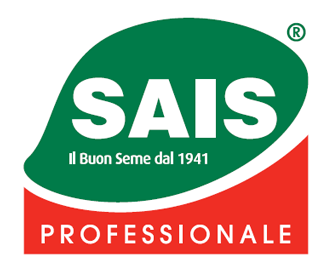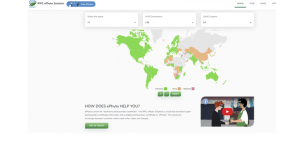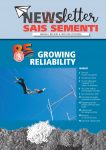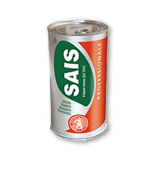“HOW DOES e-Phyto HELP YOU? “
Streamlining International Trade with e-Phyto: Benefits and Challenges A Digital Revolution in Plant Health Certification
The international trade of plants and plant products is a complex and often time-consuming process. One of the key challenges is ensuring that these products comply with the stringent phytosanitary requirements of importing countries. This typically involves the exchange of paper-based phytosanitary certificates, which can be prone to errors, delays, and fraud.
To address these challenges, the International Plant Protection Convention (IPPC) developed the e-Phyto system, a digital platform for the exchange of phytosanitary certificates. E-phyto is designed to streamline the phytosanitary certification process, making it more efficient, secure, and traceable.
E-Phyto is not just a digital version of the old standard paper Phytosanitary Certificate: it is an electronic document which might be printed in paper in case of need, but it is created in a digital format, XML, suitable to electronic exchange, and the real certificate is the XML file.
Benefits of e-Phyto
There are many benefits to using e-Phyto for international trade. Some of the most significant include:
- Efficiency: E-phyto eliminates the need for paper-based certificates, which can save time and money. It also reduces the risk of errors and delays in the certification process.
- Security: E-phyto is a secure system that uses digital signatures and encryption to protect sensitive information. This helps to prevent fraud and ensure the authenticity of phytosanitary certificates.
- Traceability: E-phyto provides a complete audit trail of all transactions, which can be used to track the movement of plants and plant products. This can be helpful for investigating outbreaks of pests and diseases.
- Standardization: E-phyto uses a standardized format for phytosanitary certificates, which makes it easier for all parties involved to understand and use the system.
- Cost-effectiveness: E-phyto can help to reduce the costs associated with international trade, such as the cost of printing and shipping paper certificates.
- No more need of authenticated copies of the original Phyto Certificate, very helpful in case of re-export certificated.
Challenges of Implementing e-Phyto
Despite its many benefits, there are still some challenges to implementing e-Phyto on a global scale. Some of the most significant include:
- Compatibility: Different countries have different IT systems, which can make it difficult to implement e-Phyto in a way that is compatible with all stakeholders.
- Training: Users need to be trained on how to use e-Phyto. This can be a time-consuming and expensive process.
- Cost: There are some costs associated with implementing e-Phyto, such as the cost of software and hardware.
- Awareness: Many people are still not aware of e-Phyto. This can be a challenge to adoption.
The Future of e-Phyto
Despite the challenges, e-Phyto is a valuable tool for streamlining international trade. The IPPC is working to address the challenges and promote the adoption of e-Phyto by all countries. In the future, e-Phyto is expected to become the standard for phytosanitary certification worldwide.
Conclusion
E-Phyto is a digital revolution in plant health certification. It has the potential to significantly streamline international trade by making it more efficient, secure, and traceable.
Additional Resources
- International Plant Protection Convention (IPPC): https://www.ippc.int/
- e-Phyto Portal: https://www.ephytoexchange.org/landing/












